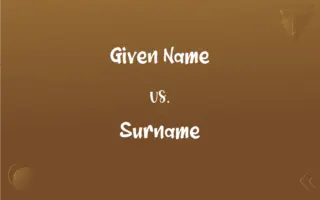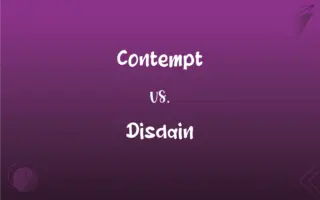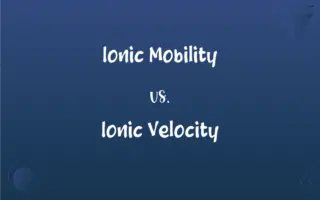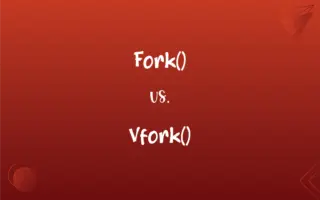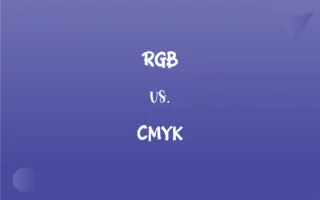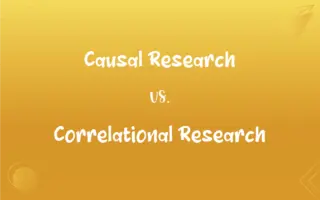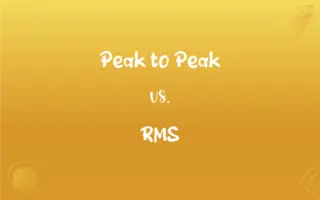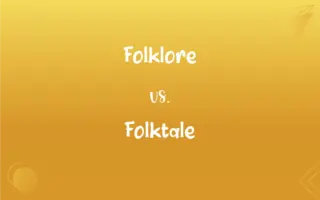Exciting vs. Interesting: What's the Difference?
Edited by Aimie Carlson || By Janet White || Updated on October 19, 2023
Exciting stirs emotions; Interesting engages the mind.

Key Differences
Exciting, in its essence, refers to something that elicits a strong emotional response, often synonymous with exhilaration or thrill; whereas Interesting denotes something that attracts your attention and makes you want to learn more about it, engaging your curiosity rather than your emotions.
The term Exciting is often used in contexts where there's an element of adrenaline, surprise, or anticipation involved, stimulating a sense of eagerness and energy; in contrast, something described as Interesting might not provoke an intense emotional reaction but instead stimulates intellectual or reflective thought.
When an event, piece of information, or experience is Exciting, it's typically associated with a heightened sense of activity, often leading to an enthusiastic or passionate response; on the other hand, when something is Interesting, it primarily appeals to our intellect or sense of wonder, prompting contemplation or further inquiry.
Exciting is a descriptor that's commonly applied to situations, events, or narratives that have high stakes, dynamic changes, or unexpected elements that keep the heart racing; conversely, Interesting is more subdued and is often used for topics, discussions, or events that have depth, complexity, or unique attributes that engage the mind.
Ultimately, the distinction between Exciting and Interesting is a matter of emotional response versus intellectual engagement; exciting situations make your pulse quicken and often involve a visceral reaction, while interesting ones pique your curiosity and prompt you to delve deeper or reflect.
ADVERTISEMENT
Comparison Chart
Emotional Response
High – causes thrill or adrenaline
Low – more thought-provoking than thrilling
Engagement
Physical or emotional
Intellectual or cognitive
Common Descriptors
Thrilling, exhilarating, stimulating
Intriguing, captivating, thought-provoking
Situations
Often unpredictable or high-energy scenarios
More informational or complex scenarios
Purpose in Narrative
To provoke action or heightened emotions
To encourage reflection or continued exploration
ADVERTISEMENT
Exciting and Interesting Definitions
Exciting
Causing great enthusiasm and eagerness.
The roller-coaster ride was really exciting.
Interesting
Arousing curiosity or interest.
I just read an interesting article on astronomy.
Exciting
Invigorating and stimulating the senses or emotions.
The prospect of traveling abroad is very exciting.
Interesting
Holding or catching the attention.
That was one of the most interesting books I've ever read.
Exciting
Thrilling and full of energy.
The final minutes of the game were incredibly exciting.
Interesting
Not dull or boring.
He has an interesting perspective on the subject.
Exciting
Stimulating interest and attention.
They launched an exciting new product line.
Interesting
Stimulating a desire to know more.
The lecture was really interesting and made me want to study further.
Exciting
Creating or producing excitement
An exciting adventure story.
Interesting
Appealing to personal or intellectual curiosity.
The museum had several interesting exhibits.
Exciting
Present participle of excite
Interesting
Arousing or holding the attention; absorbing.
Exciting
Creating or producing excitement
Interesting
(obsolete) Of concern; affecting, important.
Exciting
The process of something becoming excited; excitation.
Interesting
Arousing or holding the attention or interest of someone.
Exciting
Calling or rousing into action; producing excitement; as, exciting events; an exciting story.
Interesting
(euphemistic) Pregnant.
Exciting
Creating or arousing excitement;
An exciting account of her trip
Interesting
Present participle of interest
Exciting
Stimulating interest and discussion;
An exciting novel
Interesting
Engaging the attention; exciting, or adapted to excite, interest, curiosity, or emotion; as, an interesting story; interesting news.
Exciting
Arousing or capable of arousing lively feeling.
It's an exciting time to be in the technology field.
Interesting
Arousing or holding the attention
FAQs
Can something be both exciting and interesting?
Absolutely, many experiences can stimulate both emotional and intellectual engagement.
Does exciting always imply positive emotions?
Not always; it often does, but exciting situations can also be scary or tense.
Is excitement more physical or emotional?
It can be both; exciting things can cause physical reactions and elicit strong emotions.
How does exciting content affect audiences?
It often captivates them, potentially causing a rush of adrenaline or heightened emotions.
Does interesting mean the same as intelligent?
No, interesting means it captures attention; not necessarily related to intelligence.
Can all educational content be considered interesting?
It varies; content that stimulates curiosity or introduces new concepts can be interesting.
Are exciting movies always action-based?
Often, but not always. Any genre that involves suspense or emotional highs can be exciting.
Do exciting events always involve risk?
Not always, though risk can heighten excitement.
Can exciting be mistaken for anxiety?
Sometimes, as both can cause similar physical responses.
What physical reactions can exciting situations trigger?
Reactions like a faster heartbeat, adrenaline rush, or even goosebumps.
Can exciting news be negative?
Yes, if it's shocking or has significant implications, it can be considered exciting.
Is interesting subjective?
Yes, what's interesting to one person might not be for another.
Can routine work be exciting?
If there are elements of unpredictability or achievement, it can be.
Does interesting always imply complexity?
No, even simple things can be interesting if they're novel or thought-provoking.
Is all humor exciting?
Not necessarily; humor can be exciting if it's surprising, but it's often just amusing.
How can I make a conversation interesting?
By discussing topics of mutual interest, asking questions, and sharing unique insights.
What makes a book interesting?
Elements like plot, characters, the subject matter, or writing style can make a book interesting.
Why are documentaries interesting?
They often explore real-world topics in depth, providing new information or perspectives.
What types of stories are usually interesting?
Those with unique content, relatable characters, or intriguing plot twists.
Is every interesting fact true?
No, sometimes myths or fictional stories can also be interesting.
About Author
Written by
Janet WhiteJanet White has been an esteemed writer and blogger for Difference Wiki. Holding a Master's degree in Science and Medical Journalism from the prestigious Boston University, she has consistently demonstrated her expertise and passion for her field. When she's not immersed in her work, Janet relishes her time exercising, delving into a good book, and cherishing moments with friends and family.
Edited by
Aimie CarlsonAimie Carlson, holding a master's degree in English literature, is a fervent English language enthusiast. She lends her writing talents to Difference Wiki, a prominent website that specializes in comparisons, offering readers insightful analyses that both captivate and inform.













